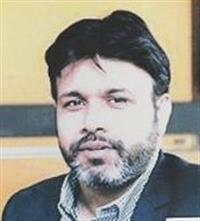
Dr.Manju Dagar Chaudhary
Qns. Dr. Ajay Kumar attacks on oil and gas installations have become the weapon of choice for international terrorism, irrespective of the political system and social-financial boundary conditions of the society under attack- current example is – Syrian Pipeline Blast? How do you see this attack?
Ans. Oil and Gas industry has been under threat, not a new thing. Mostly, Oil installations are located at remote site, characterized by poor transport connections and communication to the authorities and the associated security infrastructure. Long-distance distribution of oil and gas is carried out by pipelines.
These pipelines are built either above ground and therefore highly visible, or buried underground but frequently identifiable by markers placed above ground. In addition, auxiliary installations, such as compressor stations, are usually without any significant physical protection. The remoteness of the installations adds to their vulnerability from terror attacks. Under these circumstances it is not surprising that terrorist makes it a soft target. Even, If national security forces are supplied to guard the site, they are usually outnumbered by the attackers, who typically are members of the surrounding communities.Oil and Gas installations have not been safe – in the water, above the ground. Oil or gas exploration occurs usually in fields encompassing many individual exploration sites, stretching over large distances in remote areas. It is difficult to prevent intrusion from the outside, since attackers can use speedboats (e.g., Nigeria), 4WD vehicles (e.g., Saudi Arabia), or unmanned aerial vehicles (UAV).

Dr.Ajay Kumar
Therefore, these sites represent attractive targets for terrorists. For example – Syrian pipeline blast is fit case, as ISIS Terrorist outnumbered the Security Forces. And, they have support of one or the other nations, financially and logistically. It has put Syria under – “Dark Zone” since several hours.
Qns. Dr. Kumar how a terrorist can organize an attack on oil and gas complex architecture installations? How do they know where to hit for maximum damage? And what kind of gears they need or manpower they need for these kinds of attacks.
Ans. Oil and Gas installations have not been safe – in the water, above the ground. Oil or gas exploration occurs usually in fields encompassing many individual exploration sites, stretching over large distances in remote areas. It is difficult to prevent intrusion from the outside, since attackers can use speedboats (e.g., Nigeria), 4WD vehicles (e.g., Saudi Arabia), or unmanned aerial vehicles (UAV).
But your question is right, let me set a small example, all oil and gas installations are itself a standing or floating bomb. Consequently, terrorists can carry out coordinated attacks on individual oil and gas exploration sites within the field. The number of explosives required forSuch an attack is relatively small e.g., it has been seen that 5 kg of TNT for a single site is sufficient, enabling one individual to carry several such devices at once. In case of Syria, the destruction of a pipeline resulting from the detonation of a shaped charge: the pipeline is destroyed. Since shaped charges are commonly used in oil fields, they become readily available weapons for terrorists and are found in the vicinity of the target.
Other coordinated attack scenario on an exploration site could contain the following components: (a) Kidnapping of employees; (b) Suicide truck bomb/car bomb convoy against drilling installations; (c) Covert attack against auxiliary buildings; (d) Attack on the communication system.
Qns. Do the large number of terroristsneed to attack oil installations? Or a lone–wolf attack is also a scenario? What kind of logistics, manpower and political backing they need to attack oil installations?
Ans. On an Oil Installation, lone-wolf attack is not easy to carry. It must coordinate and highly funded by other side. Other side means – opposition party, or highly funded trained terrorist groups having support of other countries to destabilize the economy and Government. So far, I know minimum logistical requirements for a coordinated attack on multiple oil-/gas exploration sites depends on what the terrorist want to achieve.
For example: Kidnapping/murder of employees working in oil installations – terrorist needs minimum >5 armed terrorist, 4WD vehicle, Apartment as hide-out and know how about ransom.
But in case of onshore destruction, logistic required by terrorist is not very high. For example, to perform suicide truck bomb/car bomb convoy against drilling station – the minimum requirement of militantsmanpower is >2 terrorists, an old Truck, 4WD vehicle and 2,500 kg ANFO. And result you must have seen in Iraq.
But, in case of detonating a pipeline they need a little skill too. Destruction of pipeline and compressor stations by militants can be achieved with nominal manpower of >2 terrorists, 4WD vehicle and Shaped charges. To blast the pipeline putting creative pressure at one point to assure a compromised blast.
And, now–a-days we have seen cyber-attack on the oil installations as we have seen in too many cases, they hack Oil and Gas electronic control unit. Attack on the communication system needs very low manpower but highly intellectual terrorist.
Qns. But these all attacks you described above are onshore possible attacks? Are offshore oil installations safe as they are far from land, and not easy to attack between trillion gallons of water? And if they have done it, can you elaborate like above as you elaborated attack on onshore, I mean Terrorist Attack on - an Offshore Platform?
Ans. You are right Dr Manju. Offshore oil installations are better safe than onshore installations. But not fully safe. You can say, offshore platforms are subject to increased physical protection as part of the national framework of critical infrastructure, mostly it is protected by Naval Forces i.e., the airspace and the approach by sea is subject to continuoussurveillance and optional military intervention. However, as the terrorist attack on the USS Cole in Yemen in 2000 demonstrated, even a battleship with its enhanced technical and operational capabilities to ward off an enemy attack has proven to be vulnerable to a suicide terrorist boat attack.
Let me sum up threat scenarios and the associated logistical requirements for terrorists to stage a successful attack against an offshore platform. Logistical requirements for a suicide terrorist attack against an offshore platform needs high class infrastructure. Terrorist needs backing of a Country in this case.
For example: Terrorist Action on offshore installations logistical requirements for suicide attack can be achieved only when terrorist can arrange light general aviation (GA) aircraft with explosives onboard. For that they need 2 pilot terrorists, minimum >400 kg of explosives and Chartered/diverted GA aircraft
Qns. It means Mr. Kumar every sector of the oil and gas fuel cycle is vulnerable to terrorist threats to a varying degree. What is your suggestions to counter such attack?
Ans. Yes you are right; every sector of the oil and gas fuel cycle is vulnerable to terrorist threats to a varying degree Neither intelligence services, nor military forces have been able to prevent terror attacks from happening. However, several terror attacks on oil and gas installations have been foiled by well trained- and equipped security forces, e.g., in Saudi Arabia. Over the next twenty-five years oil and gas will provide about 60 percent of global energy and therefore remain the prime source of energy for industrialized and developing countries alike. Hence, country needs to understand the security needs and every country is taking care of the security needs of Oil Installations.
At the end I convey my thankyou to Fox Petroleum chairman Dr . Ajay Kumar who share his valuable time with us on this very important blast on gas pipeline in Syria and to know what kind of danger and difficulties they face .